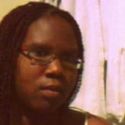-
About
- About Listly
- Community & Support
- Howto
- Chrome Extension
- Bookmarklet
- WordPress Plugin
- Listly Premium
- Privacy
- Terms
- DMCA Copyright
- © 2010-2025 Boomy Labs

 K Lew
K Lew
Listly by K Lew
Links to videos, articles etc... related to the importance of Science, the Scientific Method and Skepticism.
Patient comes in, she's upset. She's pregnant, and she doesn't understand why. She's on the pill. Upon talking to her at great length, I find out that she only takes the pills on the days that she is sexually active - no other time. Head to the Reddit thread for more anecdotes.
Steven D. Schafersman Department of Geology Miami University January, 1997 http://www.muohio.edu/~schafesd/documents/intro-to-sci.htmlx Introduction To succeed in this science course and, more specifically, to answer some of the questions on the first exam, you should be familiar with a few of the concepts regarding the definition of science, scientific thinking, and the methods of science.
Scientific literacy is the knowledge and understanding of scientific concepts and processes required for personal decision making, participation in civic and cultural affairs, and economic productivity. It also includes specific types of abilities. In the National Science Education Standards, the content standards define scientific literacy.
What is Scientific Literacy? The Organisation for Economic Co-Operation and Development's (OECD) Programme for International Student Assessment (PISA) define Scientific literacy as: "the capacity to use scientific knowledge, to identify questions and to draw evidence-based conclusions in order to understand and help make decisions about the natural world and the changes made to it through human activity."
Founded in 1943, ASCD (formerly the Association for Supervision and Curriculum Development) is an educational leadership organization dedicated to advancing best practices and policies for the success of each learner. Our 175,000 members in 119 countries are professional educators from all levels and subject areas--superintendents, supervisors, principals, teachers, professors of education, and school board members.
